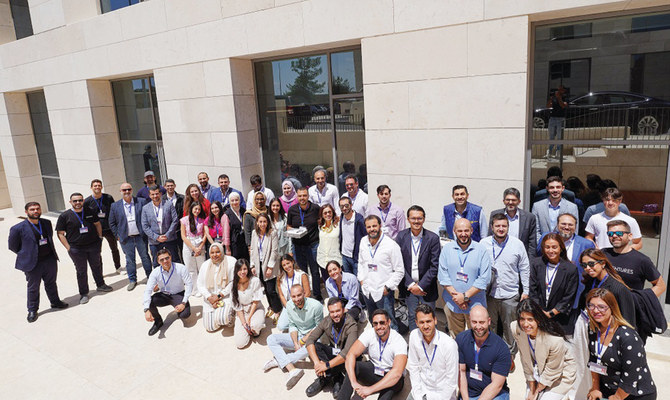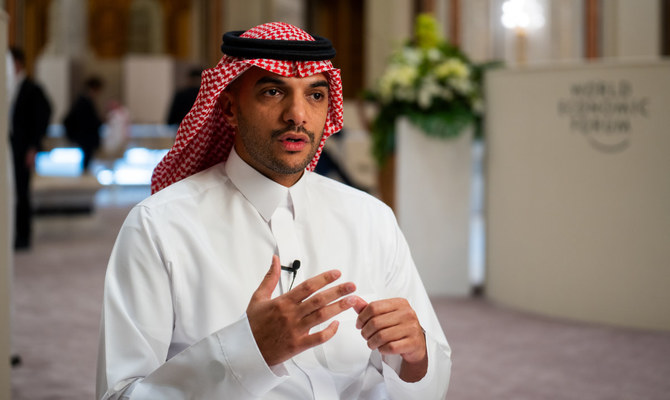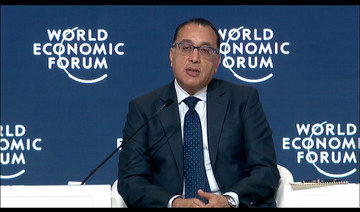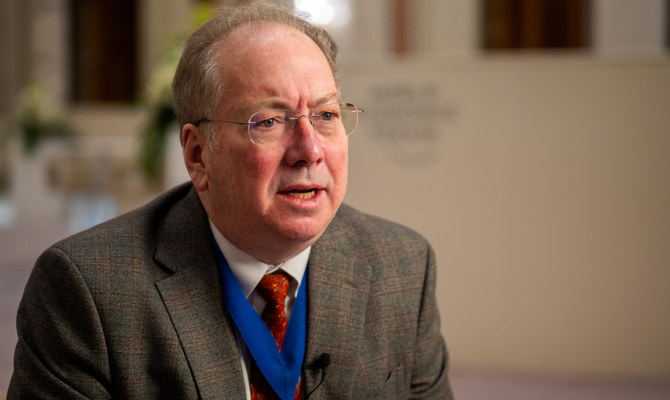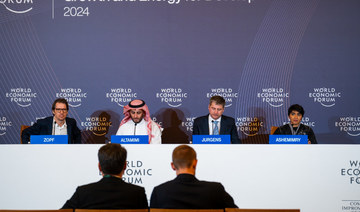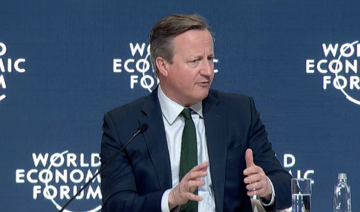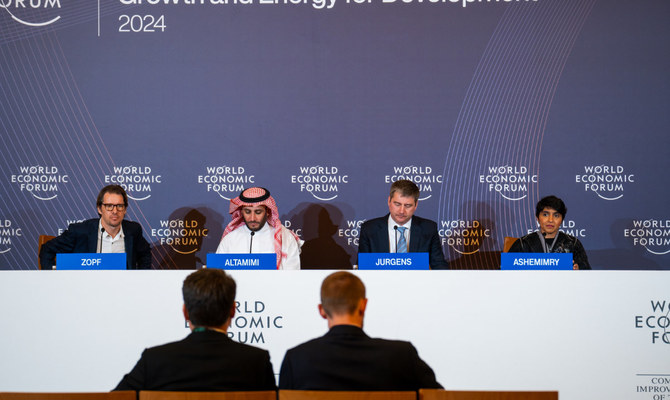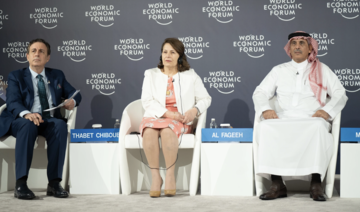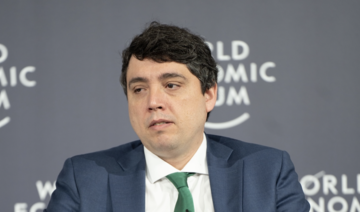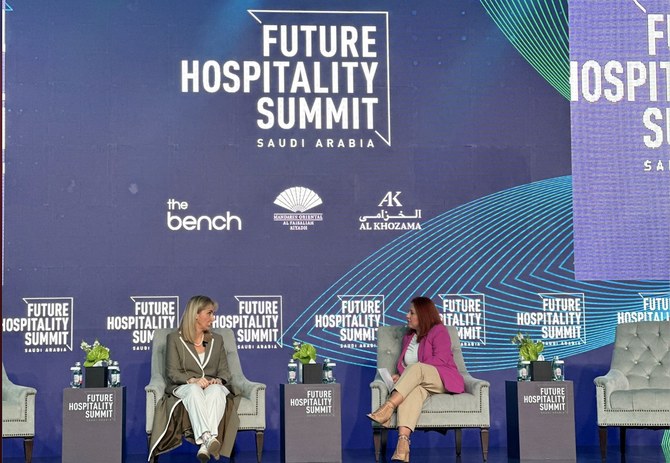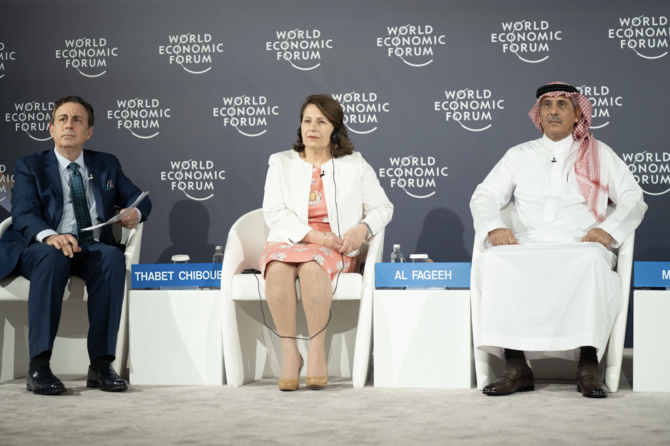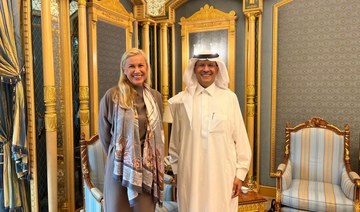CAIRO: Venture activity is on the rise in the Middle East and North Africa, particularly in sectors like fintech and health tech, as well as government-driven initiatives to accelerate artificial intelligence.
UAE-based fintech firm myZoi recently raised $14 million in a funding round led by SC Ventures and SBI Holdings.
The investment coincides with myZoi obtaining two regulatory licenses from the Central Bank of the UAE – the Stored Value Facilities and the Retail Payment Services and Card Schemes Category II.
According to a press release, the awarding of the licenses means myZoi is poised to “significantly simplify and digitize access to essential financial services for over 5 million low-income migrant workers in the UAE.”
Syed Ali, co-founder and CEO of myZoi, emphasized the company’s alignment with the UN’s Sustainable Development Goals for 2030. Specifically, myZoi aims to reduce the transaction cost of migrant remittances to less than 3 percent.
“As a tech-led, digital-native company, our drive is to make a meaningful difference not just in the lives of the underbanked, but their lifeline, which is their support network of families as well,” Ali said.
Gautam Jain, a member of SC Ventures, highlighted that there are over 1.4 billion unbanked individuals globally.
He noted: “We believe that fintech innovations such as myZoi are emerging as the catalyst for change. They are building an ecosystem that delivers simple yet meaningful solutions to low-income migrant workers while offering a commercially viable and socially impactful proposition.”
The funds raised will be used to expand myZoi’s inclusive and differentiated services, and the company is gearing up for its full commercial launch by the end of 2023.
“We wholeheartedly believe in myZoi’s vision to enable financial inclusion and secure an equitable future for every individual, regardless of their background or social status. Therefore, we are happy to invest in this impactful fintech. Our partnership with myZoi goes beyond mere financial investment and extends to support a more empowered future for all,” said Yoshitaka Kitao, CEO at SBI Holdings.
Egypt’s healthtech Sehatech raises $850k
Egypt-based health insurance tech startup Sehatech has secured $850,000 in funding from A15, a leading venture capital firm, and Beltone Venture Capital, a subsidiary of Beltone Holding Co.
Founded in 2022 by Mostafa Tarek, Mohamed El-Shabrawy, and Omar Shawky, Sehatech specializes in automating key aspects of the healthcare insurance sector, including medical approvals, claims processing, and billing cycles.
The investment is seen as a crucial step for Sehatech to modernize the healthcare insurance landscape in Egypt by leveraging technology to streamline administrative procedures.
The company aims to not only cut insurers’ operating costs but also minimize the chances of fraudulent practices.

Our drive is to make a meaningful difference not just in the lives of the underbanked, but their lifeline, which is their support network of families as well.
Syed Ali, Co-founder and CEO of myZoi
The newly acquired capital will be used for expanding the Sehatech team and investing in further product development to enhance the user experience.
“We are thrilled to have the support of A15 and Beltone Venture Capital in our mission to transform the healthcare industry in Egypt and the broader region,” El-Shabrawy said.
According to a press release, Sehatech’s technology-driven solutions represent a timely innovation in Egypt’s insurance market, with the potential for broader applications in the Middle East and North Africa region.
Dubai Centre for AI receives more than 600 applications for its startup accelerator program
The Dubai Centre for Artificial Intelligence received 615 applicant startups from 55 countries for its AI accelerator program that was launched earlier this year.
Out of the applicant pool, 30 startups have secured their spot in the program and will develop their AI solutions during an eight-week period.
The program aims to support the development of innovative AI-based solutions to current and future challenges in two main sectors, government services and media communications.
HIGHLIGHT
The investment coincides with myZoi obtaining two regulatory licenses from the Central Bank of the UAE.
“The launch of this program follows the inception of DCAI by His Highness Sheikh Hamdan bin Mohammed bin Rashid Al-Maktoum, Crown Prince of Dubai, chairman of the executive council, and chairman of the board of trustees of the Dubai Future Foundation, with the aim of transforming Dubai into a global pioneer in deploying AI tools in the public sector,” Saeed Al-Falasi, director of DCAI, said.
The DCAI Accelerator is split into two programs, the Future of Generative AI in Government Services, and the Future of Generative AI in Media and Communications.
Kuwait’s Kem raises $1m in a pre-seed round
Kuwait-based fintech startup Kem secured $1 million in a pre-seed funding round led by Maqamees Holdings.
Established in 2021 by Seth Sadeq, Zane Chichua, and George Chichua, Kem offers an innovative peer-to-peer instant payment solution.
Through its platform, users can effortlessly transfer money to one another utilizing QR codes, eliminating the necessity for generating payment links or relying on traditional accounts.
The fresh capital injection is poised to drive Kem’s growth ambitions. Specifically, the company plans to use the funds to enhance its app, aiming to improve the user experience and introduce new features.
Egypt’s Flat6Labs announces StartMashreq Growth program
Egypt’s leading seed and early-stage venture capital firm Flat6Labs launched its StartMashreq Growth Track program that aims to nurture startups until December 2024.
The program will also aim to help these startups raise $10 million collectively. The ventures are from Lebanon, Iraq, and Jordan and operate in education tech, energy tech, and property tech.



